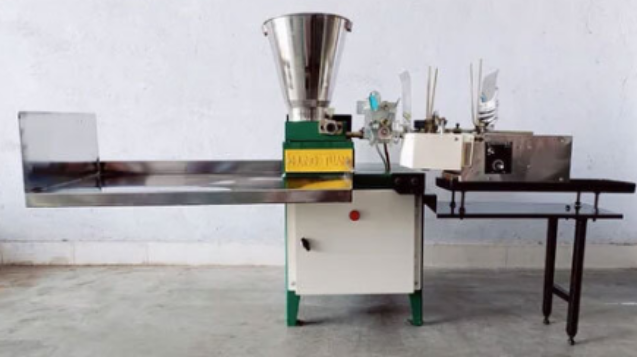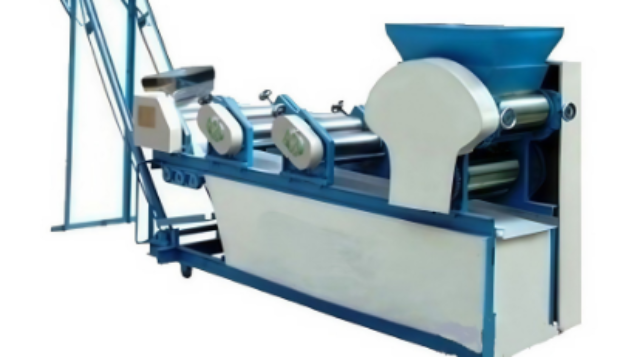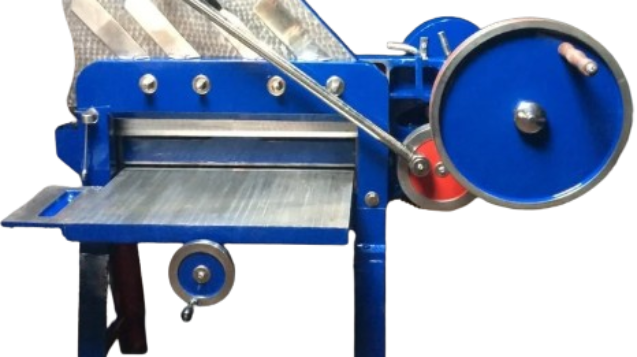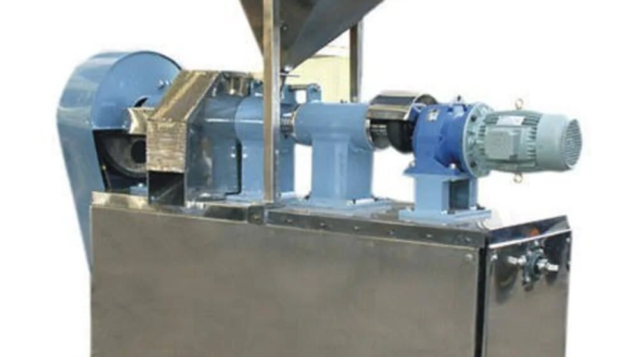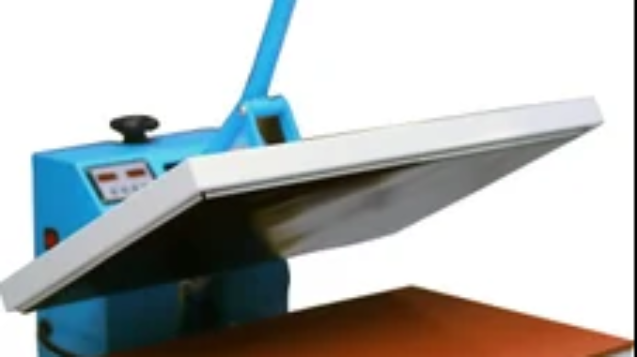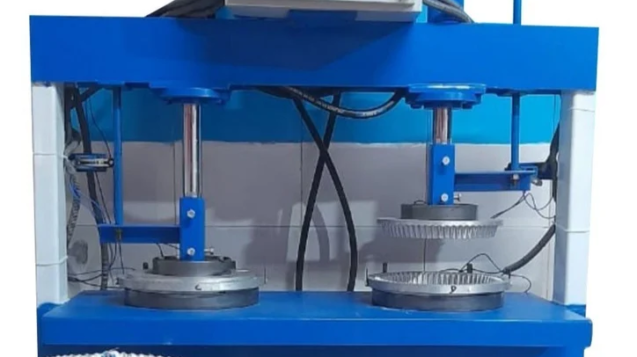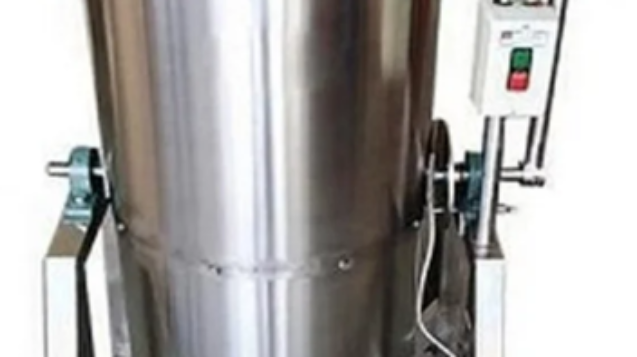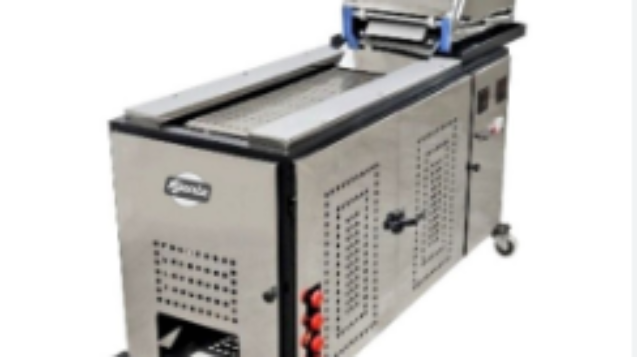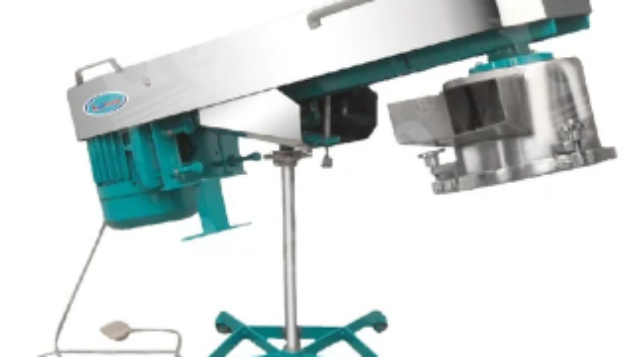India's incense industry is a blend of tradition and innovation, where spirituality meets entrepren ...
Cheap Noodle Making Machine
In recent years, the age-old craft of noodle making has seen a significant transformation with ...
How to Start a Notebook Manufacturing Business in India: Step-by-Step Guide
step-by-step guide by Sai Samprati Institute for Production and Management (SSIPM) to help you start your own notebook manufacturing business in India.
Start Your Snack Empire with a Kurkure Making Machine
India’s love for spicy, crunchy snacks is never-ending—and Kurkure leads the charge. Whether you ca ...
A Smart Start for Small Businesses: Manual Scrub Packing Machine
In the competitive world of household product manufacturing, scrub pad packaging plays a major role ...
Paper Plate Making Machine: The Smart Start to an Eco-Friendly Business
In a world that’s rapidly turning toward eco-friendly solutions, paper plates have become more than ...
Automatic Oil Dryer Machine: Make Your Snacks Crispier, Healthier, and More Profitable
In the fast-paced world of snack manufacturing, every detail matters—taste, texture, shelf life, an ...
Fully Automatic Roti Making Machine: A Smart Solution for High-Volume Kitchens
Making soft, round rotis every day—especially in bulk—can be a challenge. Whether it’s a school can ...
Transform Your Snack Business with an Automatic Stainless Steel Namkeen Making Machine
pending on the model. 🔹 Multiple Die OptionsCustomize shapes: sev, gathiya, bhujia, aloo bhujia, ...
Beginning of SSIPM’s Journey in Odisha
Sai Samprati Institute Of Production and Management(SSIPM) began its journey in Odisha with a simple yet powerful vision: to uplift rural communities by creating sustainable livelihood opportunities. The organization entered the state at a time when many villages faced challenges like unemployment, lack of skills, and migration due to limited economic prospects. Understanding these local issues, SSIPM started working at the grassroots level, engaging with communities, self-help groups, and local leaders. Its early efforts focused on identifying skill gaps and designing training programs that could lead directly to employment or self-employment .The first few initiatives included tailoring, basic computer education, handicrafts, and agri-based training, especially targeting women and youth. These programs were not just about technical skills—they aimed to build confidence, leadership, and a sense of purpose. SSIPM’s field teams conducted surveys, held awareness sessions, and created small training hubs in partnership with village panchayats. This people-centric approach quickly gained trust and participation. Though the journey started modestly, these initial steps laid a strong foundation for what would become a much larger movement. SSIPM’s early work proved that real change begins when communities are empowered to take charge of their future.
Empowering Rural Odisha through Skill Development and Innovation in ssipm
Odisha, a state known for its rich cultural heritage and natural beauty, is quietly undergoing a transformation. This shift is largely driven by a strong focus on skill development, entrepreneurship, and innovation in its rural areas. Through initiatives led by organizations like SSIPM (Sai Samprati Institute Of Production and Management), rural communities are becoming self-reliant, reducing the need for migration and enabling locals to create livelihoods right in their own villages. One of the significant barriers faced by rural youth in Odisha has been the lack of vocational skills. While traditional education serves its purpose, it doesn’t always align with the demands of modern job markets. SSIPM has been working tirelessly to bridge this gap by providing skill training in diverse areas such as digital marketing, tailoring, sustainable agriculture, and food processing. These skills are not just theoretical but hands-on, allowing individuals to build businesses and earn an income from the comfort of their homes. A shining example of this is a group of women in Ganjam district who were trained in mushroom cultivation. These women have transformed their homes into mushroom farms and have become entrepreneurs, contributing to the local economy while uplifting their community. Innovation in rural Odisha is not limited to technology; it’s about finding creative solutions to local challenges using available resources. SSIPM has been instrumental in encouraging rural innovators who are developing low-cost, practical tools and products such as eco-friendly packaging materials, millet-based food products, and sustainable bamboo products. By offering mentorship, seed funding, and access to markets, SSIPM has provided a platform for young innovators to turn their ideas into viable businesses. These innovations not only create local jobs but also have a positive environmental impact, as many of the products are eco-friendly and sustainable. At the heart of SSIPM’s mission is the idea of sustainability. The organization has been focused on promoting practices that align with environmental conservation, women’s empowerment, and the principles of the circular economy. Solar-powered machines, organic farming techniques, and biodegradable packaging solutions are just a few examples of how sustainability is being integrated into everyday life. This focus on sustainable development ensures that the growth achieved is not just temporary but continues to benefit the community for generations.
How to Start a Manufacturing Business Without Investment Through SSIPM
Starting a manufacturing business often seems like a dream limited by financial barriers. However, with the right support and resources, even individuals without capital can step into the world of manufacturing. One such platform making this possible is SSIPM (Support Scheme for Integrated Promotion of Manufacturing) — a government-supported initiative aimed at promoting micro and small enterprises in Odisha
Understand What SSIPMOffers
SSIPM provides aspiring entrepreneurs with access to shared manufacturing infrastructure, technical support, mentorship, and market linkages. Instead of investing in machinery or factory space, you can use government-funded facilities equipped with advanced equipment. This significantly reduces the initial capital requirement.

Why SSIPM Machines Are a Game-Changer
✅ Durable Build – Long-lasting steel frame and precision-engineered parts
✅ Easy to Operate – Minimal training required
✅ Low Maintenance – Designed for rural and urban environments
✅ Scalable – Start with one machine, expand as orders grow
✅ After-Sales Support – Pan-India service, spare parts, and troubleshooting
Beneficiary Success Story
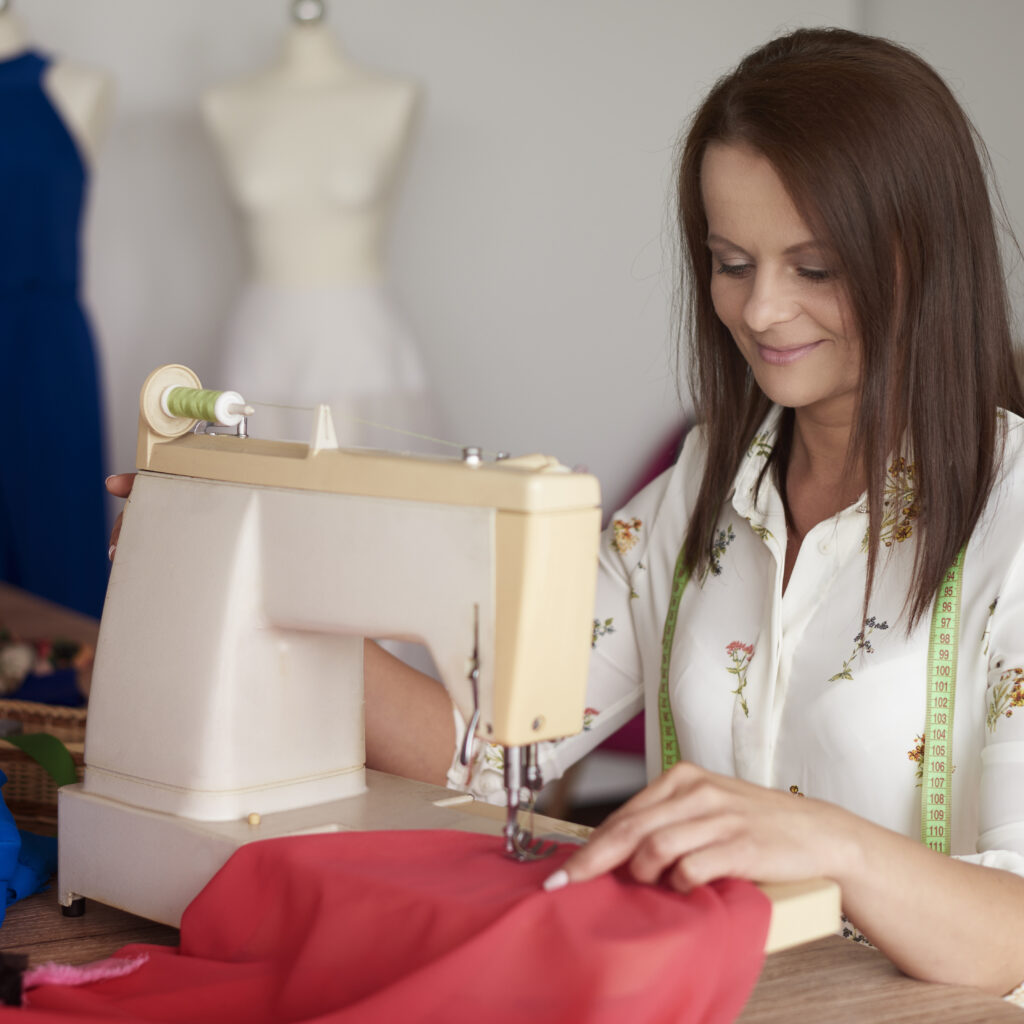
Suman Rani – Empowering Women through Tailoring
Suman Rani, a woman from Kendrapara district, always aspired to be financially independent but lacked opportunities in her rural community. Her life changed when she joined SSIPM’s Tailoring and Apparel Design program, where she learned skills in garment making, stitching, and business management. Using her new skills, Suman began offering tailoring services in her village. Her business grew as demand for her high-quality, custom garments increased. Soon, she was designing and selling handmade apparel, which became popular locally. With SSIPM’s support, she expanded her business and trained two other women from her village, empowering them to earn their own income. Today, Suman runs a successful tailoring business, provides employment to others, and serves as a role model for women in her community. Her story is a testament to the power of skill development and entrepreneurship in rural empowerment.
Kalpana Mishra – Empowering Rural Women through Food Processing
Kalpana Mishra, a woman from Jagatsinghpur district, struggled to make ends meet with limited employment opportunities in her rural community. Her breakthrough came when she joined SSIPM’s Food Processing and Packaging program, where she learned how to turn locally grown fruits and vegetables into processed products like pickles, jams, and juices.With SSIPM’s support, Kalpana began producing high-quality, packaged food products and selling them at local markets. Her products quickly gained popularity for their authentic taste and natural ingredients. As her business grew, Kalpana employed several local women, teaching them food processing techniques and providing them with a steady income.Today, Kalpana’s small-scale food business has become a thriving venture, empowering women in her village and contributing to the local economy. She continues to inspire other rural women to take control of their livelihoods.


 Cart is empty
Cart is empty 